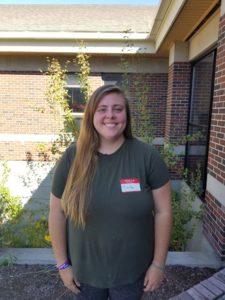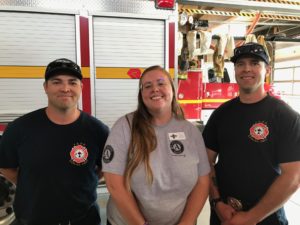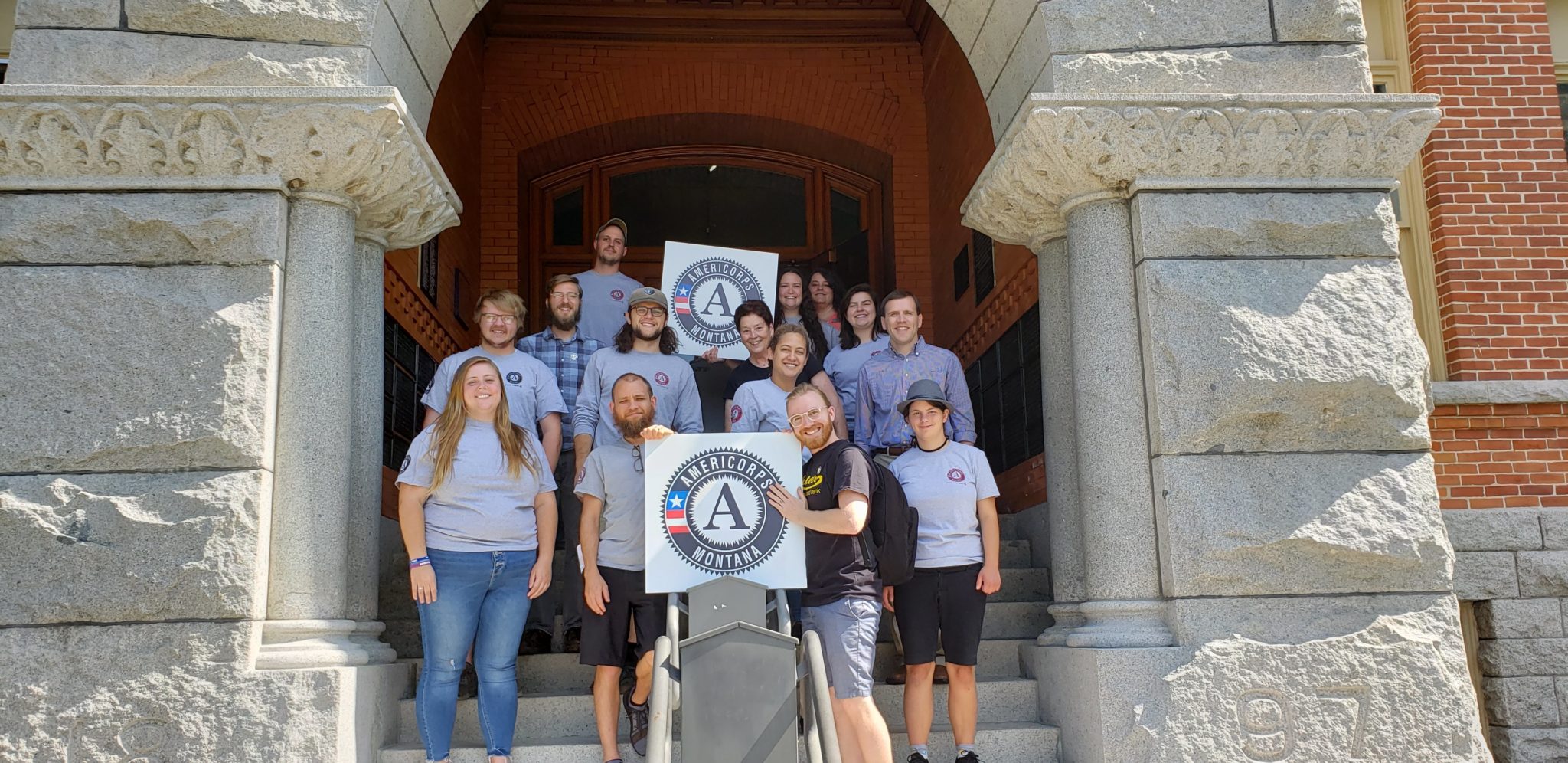To Be Continued By Emily McMath
One of the first things we learn to do as humans is communicate. Maybe it’s just through coos, wails, and large amounts of flailing, but we’re trying our best. This is where telling our story begins.

Gradually, we learn to speak, and in my case, we find it hard to shut up. We have a need to voice every thought that runs through our growing, curious minds. As we go through school, we are taught the importance of reading and listening to others with intent. This is the first case we are actively told to listen to other people’s stories. Stories become an essential part of our life.
My AmeriCorps story starts back in May 2019 in a small fishing village in the south of England. As I was preparing to start my last undergraduate course, I received a call letting me know I had been accepted for a position at The Historical Museum at Fort Missoula. I was glad not only to have a position serving with AmeriCorps, but to also have an answer for everyone who kept asking what I was going to do once I received my diploma. The next hurdle was to move a couple thousand miles with only a week to pack everything up.

Fast-forward a couple months and I am only partially unpacked – but not for lack of trying! – and I am settling in at the museum very well. I arrived at the start of the busy fall field trip season, which means I have been immediately tasked with learning as much Missoula history as possible, and turning right around to share that knowledge with elementary students.
Serving hundreds of kids within the first couple of months has been great because I can easily see the potential impact of my service at the Fort. It made for an exciting honeymoon phase for my year of service, but it has also made the museum’s “slow season” that much starker and quieter.
Having the time to sit at my desk and brainstorm ideas with my site supervisor is all well and good, and new projects are always exciting, but there is more time for monotony as well. I miss the crazy hordes of seven-year-olds interrupting my train of thought with odds and ends stories that have no relation to 1920s schooling or 1880s home life. The impact doesn’t seem so immediate and in your face, and this seasonal kind of gratification makes the not-so-thrilling moments that much duller and more frustrating.
In every novel or story I’ve read, the protagonist must learn and grow before they can overcome the greatest obstacle (i.e., the whole point of the darn thing). It’s hard to think that in my own story the obstacle I am facing is the mentality of “am I doing enough”?
Am I giving these students my personal best? Could I be doing more? Sometimes it’s hard to step back and realize that I am new to this position, and that I have only been in this community for two and half months of a whole service year. My story has only begun and the one thing I know I can do is try my best and… continue.
 Blog
Blog 